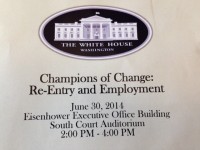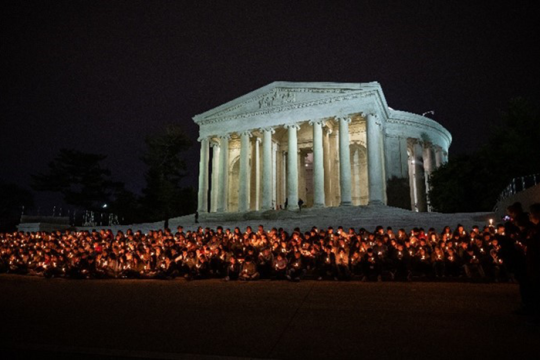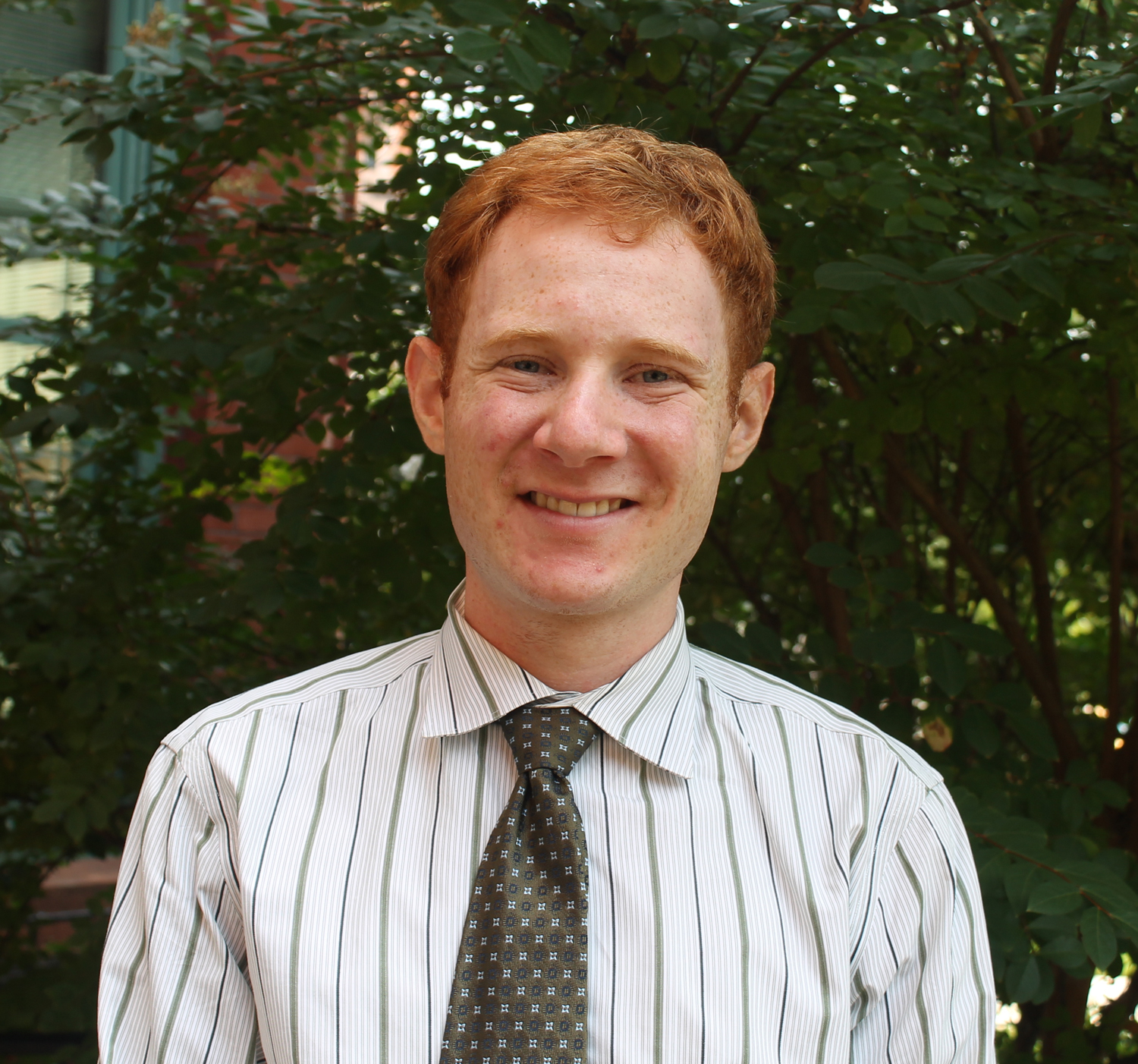
Last week, I had the opportunity to attend the White House event, Champions of Change: Re-Entry and Employment. The event honored 16 Americans doing extraordinary work in their local communities to facilitate employment opportunities for individuals formerly involved in the criminal justice system. Attendees heard from inspiring speakers and two panels featuring the “champions.” For advocates and federal officials, it was an opportunity to take a look at best practices and local success stories in this critical area.
The event began with remarks from several inspiring speakers, including Attorney General Eric Holder. Holder framed the conversation around reentry and employment by reminding us that “sound reentry policy… is a moral imperative… [and] the costs of failed reentry—social, economic, and moral—are too high to bear.” Also speaking was Piper Kerman, author of the best-selling memoir (and inspiration for the hit TV series) Orange is the New Black, who argued that “What gets people out of the criminal justice system and onto a path of dignity… is work.”
Roy Austin, Deputy Assistant to the President for Urban Affairs, Justice and Opportunity, and Tonya Robinson, Special Assistant to the President for Justice and Regulatory Policy, who oversee much of this work at the White House’s Domestic Policy Council, also spoke about the importance of finding stable jobs for the millions of ex-offenders who reenter American communities.
The “champions” included Americans from all walks of life, who in diverse ways contribute to this important effort. Amongst them were several small business owners and entrepreneurs, a county sheriff, a community college president, a Catholic clergyman, a civil rights attorney, and the CEO of a workforce development organization. The stories of these and other “champions” helped illustrate the ways that so many of us—no matter what our profession or background—can contribute to this essential cause.
And it is essential. The vast majority of Americans held in prisons and jails will reenter society, and their ability to find and maintain a job is critical to their successful social and economic reintegration into the community. Reintegration is key to decreasing recidivism and making meaningful contributions to society. But the majority of ex-offenders have difficulty with employment, facing a number of structural barriers, and 60-75% are unemployed up to a year after release.
Our Jewish tradition reminds us, “The wicked [should] turn from his way and live” (Ezekiel33:11). Ensuring that ex-offenders have a viable path to re-integration into the community is essential to ensuring a just society—and makes sense in terms not just moral, but in terms of economics and public safety as well. Attending the White House event last week was an important reminder of the power of public policy and private initiative to shape these important outcomes.
Related Posts

Teens from North Carolina Speak About Environmental Justice

Why is this Right Different?: City of Grants Pass, Oregon v. Johnson and the Passover Call to Action


